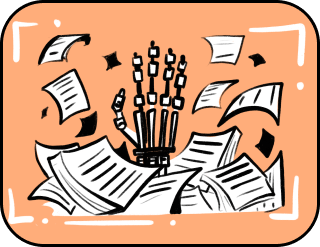Games banks play: understanding the role and strategies of banks
Oh yes… Dreamers, adventurers of the financial world, and those about whom people say, “Genius, millionaire, philanthropist” – and those who aren’t called that yet but certainly will be.
Why not add one more project to all those that have secured your wealth, and make the economic orchestra play only your music?
Piano, dear, piano
Indeed, why not build a bank? A money house that entices with the rustling of bills? Such houses aren’t just financial institutions; they are powerful tools that help manipulate money, providing both financial well-being and security. In the end, banks are like magic lamps from which you can summon interest, loans, and investments.
The influence of banks on our lives is virtually limitless: they keep our money safe from theft and loss, earn interest, turning savings into a source of additional income; allow us to get loans to fulfill dreams, whether it’s a house, a car, or business development; facilitate payments using bank cards and electronic wallets for convenient shopping and services; and of course, they invest using various investment products to grow our capital.
That’s what banks should do. But the banking world has many diverse scores, its own laws, and special notation with its own rules and strategies.
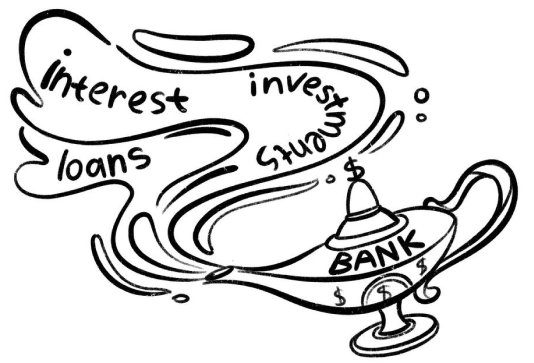
Forte
To build your financial orchestra, you need to decide on the type of your future institution.
Commercial banks are like big savings boxes; they offer services in the form of deposits, loans, and payments. They help manage the money of ordinary citizens and large corporations, providing them with financial tools for success.
Investment banks are like constructors building huge buildings. They help companies grow and develop by providing access to capital. They help raise money in the stock market, form financial structures. They are like teachers who teach everyone to save and offer attractive interest rates for those who want to secure their future.
Savings banks are the keepers of capital. They would never have appeared if people knew how to save cent by cent without giving in to temptations.
Mortgage banks can bring dreams of a house, a car, or even a private runway to life right now.
To effectively manage a banking orchestra, an experienced conductor is needed. Central banks conduct all these economic piggy banks.
Their functions are: control, monetary policy, management of gold and foreign exchange reserves. Central banks are responsible for the stability of the entire economy, like a laboratory where various money experiments are conducted.
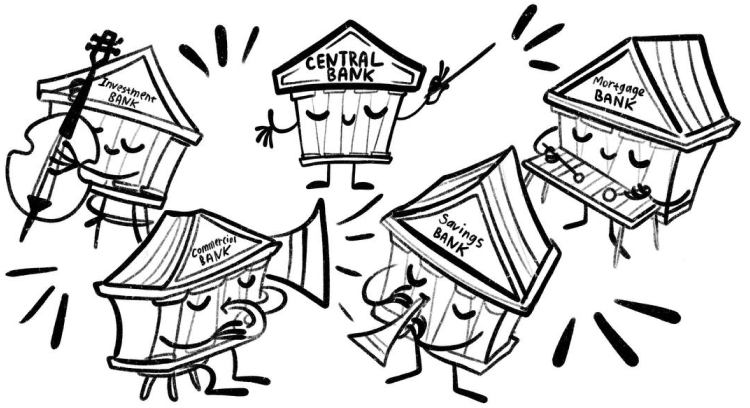
Crescendo
For many years, traditional banks have played the leading role in the world of financial services, but revolutions occur even in such a delicate sphere. A relatively young instrument has joined the economic orchestra – a new type of bank that has no physical branches. These banks operate entirely online, offering their services through mobile applications and websites, and confidently take the lead on global platforms.
A prominent example of an unusual instrument is Tinkoff Bank – a digital bank founded by Oleg Tinkov in 2006. It has changed the perception of how financial institutions should operate in the digital age.
The format allows clients to manage their finances from anywhere in the world with internet access, saving time, effort, and travel expenses, as clients do not need to visit an office.
Thanks to technology, the service is constantly evolving, and personalized recommendations allow users to gain experience in benefiting from their financial decisions.
Moreover, the absence of hidden fees affects the competitiveness of interest rates, and the minimal maintenance costs are significant for many clients.
By writing a part for such an instrument in the financial orchestra, you are undoubtedly making a breakthrough in banking services, where technology and innovation are at the helm. Playing a monetary musician will be interesting, trendy, and useful. And most importantly – convenient and functional.
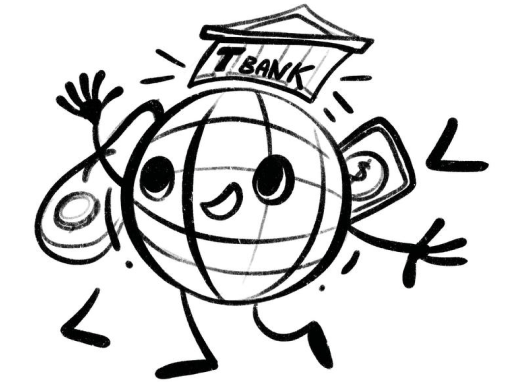
Diminuendo
When you have decided on the type of your future institution and fully determined the orchestral lineup, it’s time to move on to project work.
To establish your own bank, you will, of course, need money. A lot of money. And that’s not all. To fine-tune all complex internal processes, you need to be at least a polyglot in the financial world, have a perfectly harmonized first lineup of musicians, and a good team of professionals who know all the nuances of banking. You need to be a composer, a boss, a lawyer, a marketer, a programmer, a designer, an analyst, a psychologist!
Your ability to assess clients’ financial status, analyze the market, and manage risks associated with lending and investing will prevent losses and ensure stability. Knowledge of banking and financial laws and regulations is a lifeline from fines and sanctions.
Genius marketing moves and communications are necessary to fit into the rhythm of the modern banking world, and experienced brass instruments, that is, salespeople, are necessary to attract clients. Try selling snow on Elbrus! Innovations in products and services will allow you to stay a step ahead of competitors and will greatly simplify functionality, financial reporting, and internal auditing, which are key to understanding the secrets of banking operations.

Andante
Every great banker, like every great composer, starts with a grand idea. The continuation is a business plan. A complex task. But with the help of advanced forecasting algorithms, it can be managed.
The financial offspring must have a catchy and memorable name, for example, “Financial Gambit” or “Credit Cosmos.”
To legalize the bank’s relationship with the state, you need a license, for which you must navigate the labyrinths of banking regulators and approvals, study thick piles of scores and papers, and put countless signatures. Trials, short pedal, and running around. Glissando, and the bank becomes legitimate.
Founding a bank is not just about gathering money for more money; it’s about creating a living organism from knowledge, skills, and strategic vision. You need not only to assemble all the details of the orchestra but also to make it sound! Inspire musicians, delight listeners, and make strategic decisions that lead to financial success.
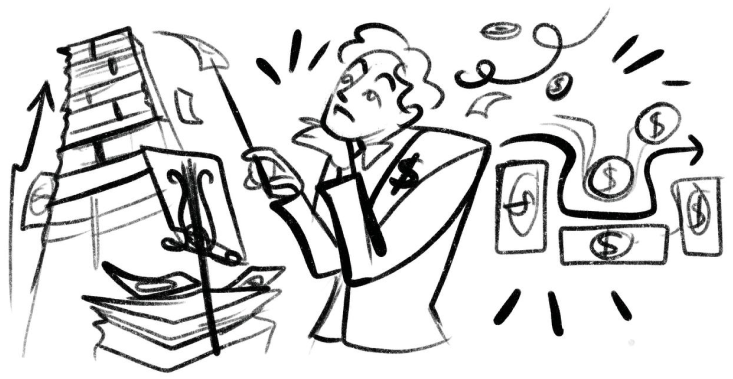
Accelerando
Technological progress does not stand still, and synthesizers have come to replace classic instruments, capable of replacing an entire orchestra.
Why not make it so that the bank is entirely managed, say, by artificial intelligence? After all, AI never gets tired, doesn’t eat, doesn’t drink, doesn’t go to the bathroom, and easily learns even the most complex parts, until it gets tangled in its own algorithms. With such an ally, you could disband the orchestra and give all the important parts to it. Let it create the perfect system for managing banking operations, predict cryptocurrency speculation, offer many innovative solutions, from blockchain to technologies that will approve loans by your cat’s voice.
With the help of technology, of course, you can try to fill out documents and forms in compliance with the law, but it’s advisable to check that the neural executor hasn’t registered you as a banker at the Conservatory. Is it worth replacing the orchestra with one musician who might decide that clients’ money is just data that can be deleted and rewritten, or start issuing loans only to those whose passport numbers match all digits?
The neural network will gladly conduct interviews for you, using its algorithms to select ideal candidates, but be prepared for your chief analyst to be a robot that still doesn’t understand why violinists don’t like umbrellas.
If you treat such an experiment as a test, entertainment, or a pilot project – why not, any idea, like any musical interpretation, has the right to life. But before releasing such a musician into the main lineup in the banking system, it’s still worth teaching him to accompany well.
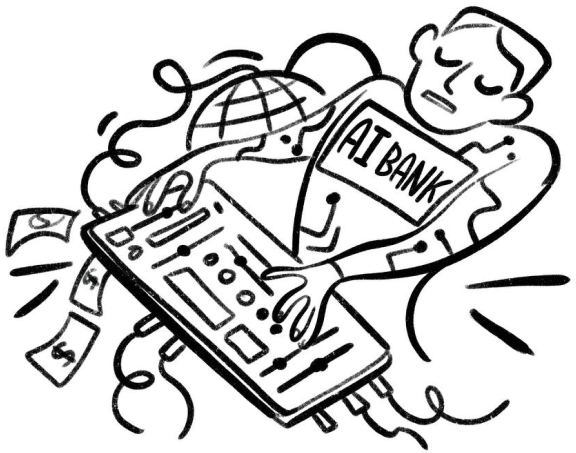
Fortissimo
When creating an orchestra, conductors think about the listener; there are no other judges or measures for them. Enthusiastic applause is the main equivalent of all the efforts invested. Founding a bank is not just a business plan, financial wisdom, or capital; it’s a desire to make the new system more flexible, adapted to the life and financial needs of people. Perhaps the absence of this component sometimes prevents even experienced conductors from constructing economic orchestras that will not leave the audience disappointed.

The atomic fortress has fallen. And our hair stands on end!
Thank you!



